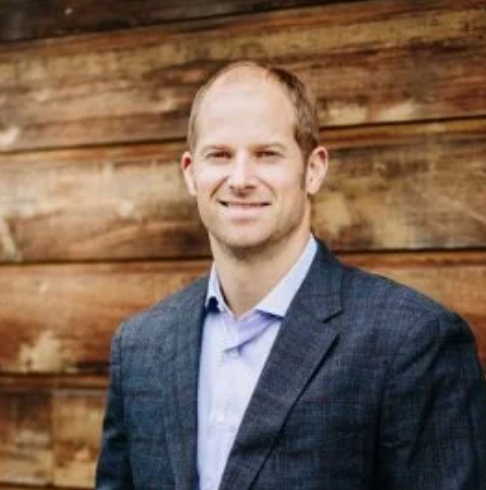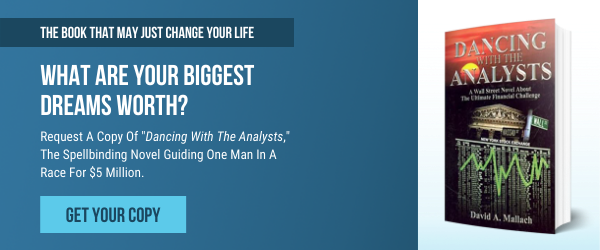One of my favorite TV shows is American Greed on CNBC. If you aren’t familiar with it, its producers describe it as a “shocking true crime series [that] examines the dark side of the American Dream,” adding, “some people will do ANYTHING for MONEY.” It’s a fascinating examination of how people get swindled. And while that is an interesting topic, it will not be our focus today. I only bring it up because it has to do with relationships and trust, the very currency that our industry relies upon for its existence.
I’m always interested in thinking about the financial advisor-client relationship, specifically the dynamic that is generated when there isn’t equal footing in the relationship. You know, when the client feels shy or inadequate or somehow obligated to ‘go along’ with whatever the financial advisor proposes. For a variety of reasons, the client develops a certain comfort level with the advisor, and then – either consciously or unconsciously – overlooks flaws or inconsistencies in the person and their process, which can lead to disastrous outcomes.
You might wonder, “Well, how is it that a flaw in a person or process is overlooked?” Especially when in hindsight, it is glaringly obvious that all the signs were there. I think the reason for this is because as humans we prioritize relationships above just about everything. All of us are susceptible to this, and if you look carefully, you may discover it in your own life in many ways. Perhaps it even affects your choice of a financial advisor.
Certainly, it’s important to prioritize relationships. If it’s your financial advisor we are talking about, this is somebody you're trusting with your hard-earned money, so your relationship is extremely important. But it’s just as important to acknowledge that the trust you extend includes some susceptibility to the mistakes this individual will inevitably make.
Let’s say I’m proposing that you try out my services. Imagine if I come to you and point out a flaw in your relationship with your advisor, or in your advisor’s process, or in their pricing model. (Isn’t it so that from the outside we see clearly what often cannot be discerned from the inside?) With my “perfect vision,” I may even have all the research lined up, and multiple bullet points of ammunition that show without a doubt how you would benefit from leaving this relationship. I may say something like: “You’re in mutual funds right now, Mr. and Mrs. Client. And I know you said you're paying your advisors one and a half percent. You may not know that these mutual funds they selected for you also have internal expenses that a lot of times are at or exceed that one percentage point. So all-in, I don't know if you know this, but you're paying two and a half percent, or three percent or perhaps more than three when you consider all costs." That was pretty good, right? I’m feeling so smart, making the most rational of arguments. I can even back it with legitimate studies and white papers, like "The Hidden Cost of Mutual Funds.”
All of this may be an exercise in futility. Because if you happen to have a good relationship with your existing advisor, pointing out that you’re overpaying them –may be akin to character assassination, or an attack on your personal relationship with this person.
So if you can’t reason with people about their relationships, then how do you get people to “see the light?” No amount of data, or reality, or grounded arguments can win against human emotion. Relationships are founded on emotion. As humans, we can find a million ways to rationalize our behavior. The truth is that I don’t want to upset any positive relationships that the client may have. I certainly wouldn’t want someone to do that to any of my relationships.
The good news is that those very human traits that prevent us from changing people’s minds can help us win the argument, too. While I know that humans make irrational decisions, I also know that humans are curious by nature. People actually like to try new things, and so I appeal to their natural curiosity. People also love getting better at anything. We like to evolve and grow and develop. Instead of replacing a prized relationship, I may suggest that no one is perfect. I’m not perfect. I know that there are many ways that I could be better. That is an undeniable fact. Then I may suggest that a client try just a tiny nibble of what I have to offer. I invite people to take a step that’s significant enough to give them the opportunity to experience the difference in our process, yet small enough so as not to pose a risk to their standing with their existing advisor.
Yes, it takes patience. Yes, it takes time. It’s also a non-threatening approach that shows people we respect them and their choices. Whether in life or in business, you may want to try it for yourself. The results speak volumes.
Ben Beck is Managing Partner & Chief Investment Officer at Beck Bode, a deliberately different wealth management firm with a unique view on investing, business and life.

 Benjamin Beck, CFP®
Benjamin Beck, CFP®